alexandra morton
Alexandra Morton was born in 1957 in Lakeville, Connecticut. She developed her love for animals at an early age when she explored in the woods with her brother. She is Canadian-American, best known for her 25-year study on Orcas in the Broughton Archipelago in British Columbia. Alexandra studied Marine Biology and Cetology, a branch of Zoology, at American University in Washington, D.C.
Despite growing up in inland Connecticut, gravitated towards the water for her entire career. In 2002, she published a memoir called Listening to Whales: What the Orcas Have Taught Us, in which she shares stories of her career.
Besides her marine research on orcas, Alexandra studied Canadian salmon by researching the impact of salmon farming on the wild. As the director of Coast Wild Salmon Society, Morton released a booklet called Salmon Confidential: The Ugly Truth About Canada’s Open-Net Salmon Farms, in which she explores what her study found on the effects of wild salmon. To further raise awareness of this issue to the public, she helped found the movement Salmon are Sacred.
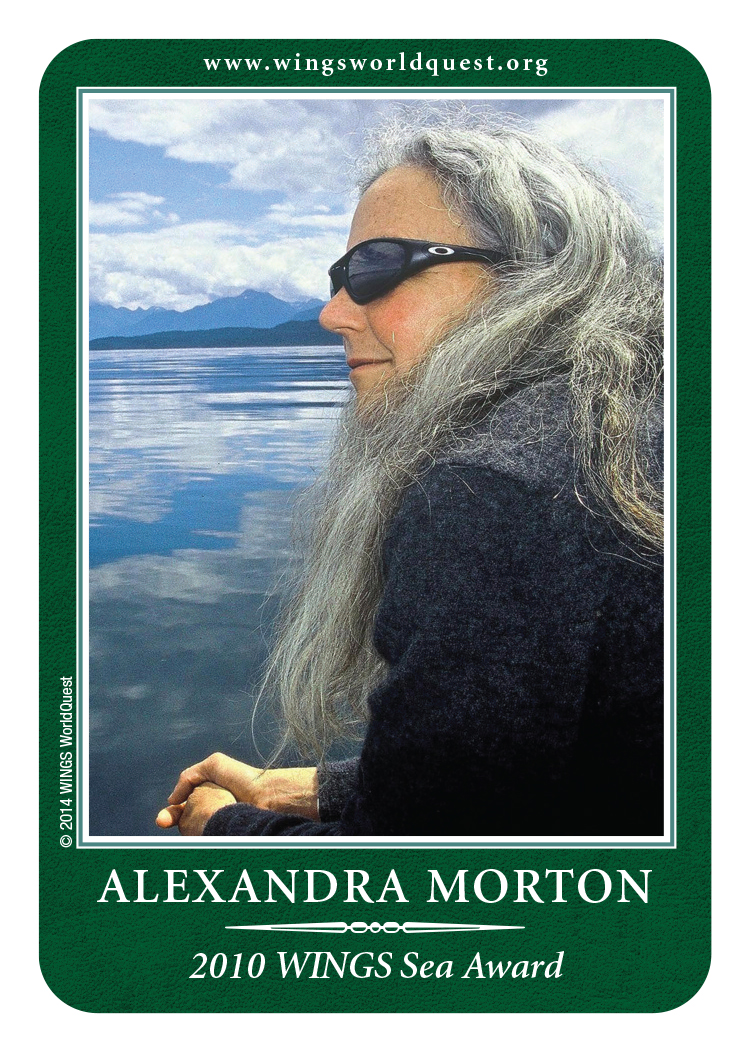
Born: 1957
Hometown: Lakeville, CT
Education: B.Sc. in Biology
Occupation: Marine biologist
Expeditions: Decades in a remote archipelago in British Columbia, Canada
Favorite Place: In my boat
Best Discovery: Pacific white-sided dolphins are not invaders to British Columbia, but in fact have been here before because their bones are in the native middens
Favorite Item In The Field: Good socks
Personal Hero: Jane Goodall
Hobbies: Playing guitar
Books: Listening to Whales: What the Orcas have Taught Us; Heart of the Rainforest: A Life Story; Beyond the Whales; and others
Website: www.alexandramorton.ca/
Advice: Do not sweat the small stuff, save your energy for the big stuff and keep your voice low and calm, because society has a built-in “off-switch” for shrill women.
Blog Posts:
Featured
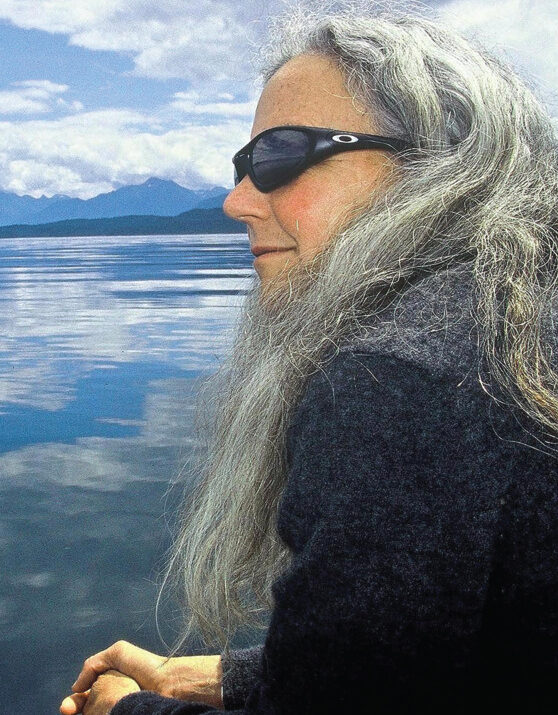
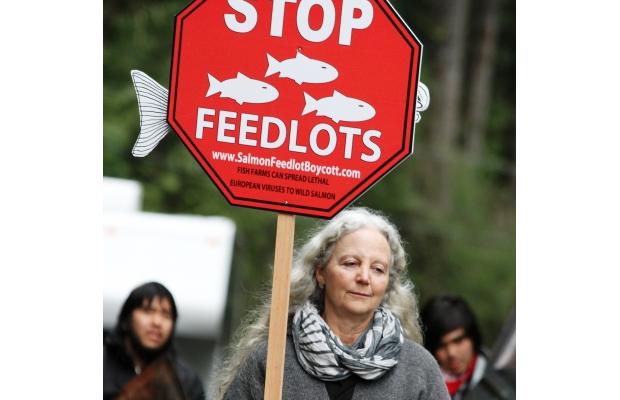
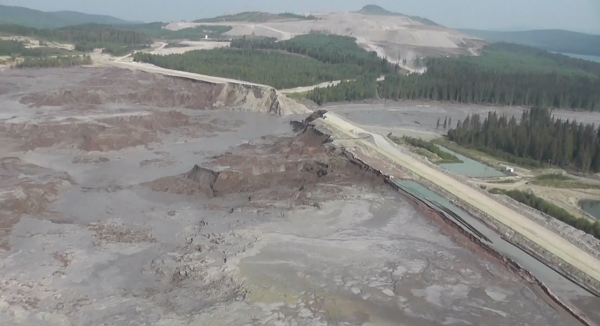
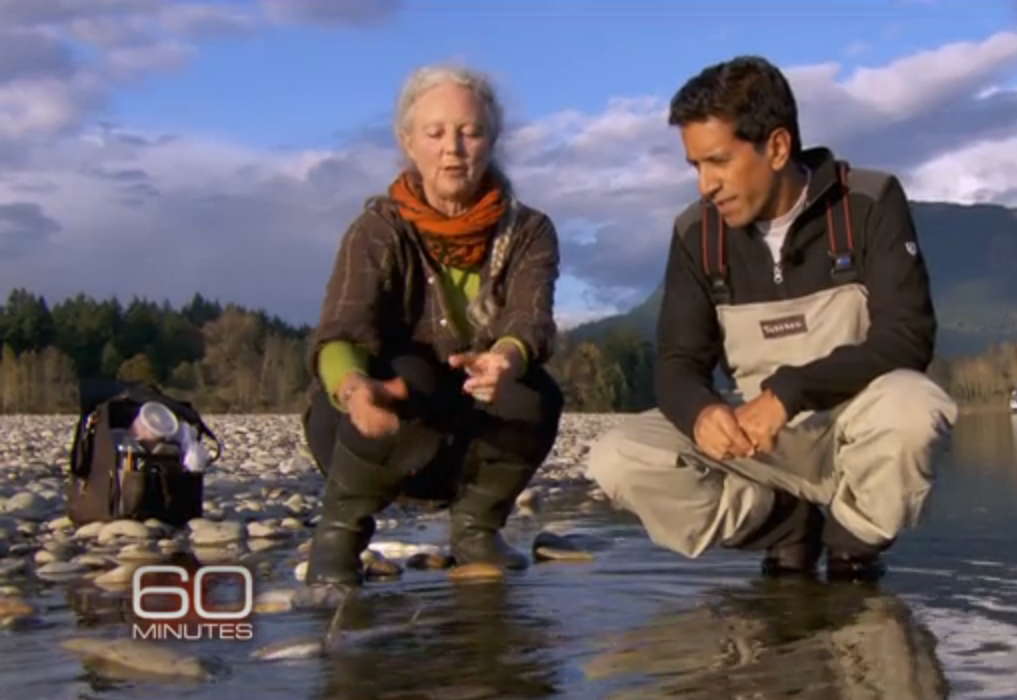
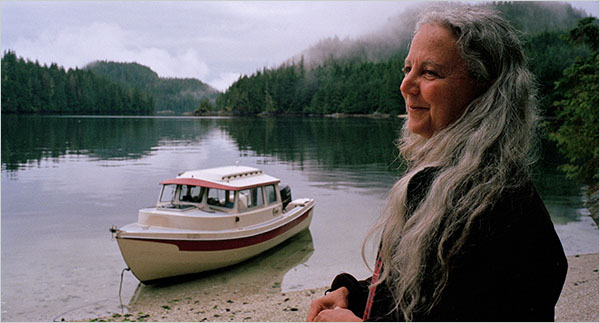
Biologist Alexandra Morton began researching the orca whales off the coast of British Columbia 30 years ago. Around that time, the local salmon farming industry grew, and acoustic seal repellant systems were scaring away the whales as well. When whales abandoned the archipelago, she ultimately shifted her research focus to the negative impacts of salmon farms on wild salmon.
Today, the 2010 Women of Discovery Sea Award recipient is embroiled in an ongoing battle, involving direct action with indigenous communities, high-stakes litigation and a research on viruses in farm salmon for sale in markets. Alex spoke to us about her research and her efforts to protect wild salmon in Canada.